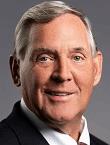The Group Purchasing Organization Perspective On Biosimilar Adoption
By Todd Ebert, President and CEO, Healthcare Supply Chain Association (HSCA)

At a moment of great change for the U.S. healthcare system, healthcare providers and the patients they serve face significant challenges. Pharmaceutical pricing, price spikes for critical generic drugs, and ongoing drug shortages all demand common-sense policy solutions that increase competition and innovation in the market. The promise and cost-saving potential of biosimilars has never been more critical.
Biosimilar drugs have the potential to increase patient access to lifesaving treatments and to reduce costs for the entire healthcare system. One study projected biosimilars could yield savings of $250 billion over a 10-year period. It is critical that the FDA ensures a pathway to market for biosimilars that prioritizes patient safety and encourages development and uptake of these less-costly therapies.
What GPOs Are Saying — And Doing — About Biosimilars
The Healthcare Supply Chain Association (HSCA) and its member group purchasing organizations (GPOs) are sourcing and purchasing partners to American hospitals, long-term care facilities, surgery centers, clinics, and other healthcare providers. We help our healthcare provider partners leverage their purchasing volume to negotiate competitive prices on healthcare products and services, helping to lower costs for patients, hospitals, payers, Medicare and Medicaid, and taxpayers. The value GPOs deliver allows healthcare providers to focus on their core mission: providing first-class patient care.
Our work with hospitals and other healthcare providers has given GPOs insight into the biosimilar market and early potential challenges to successful adoption. Because there are only two biosimilars currently marketed and key questions remain about the timing of other launches, the realization of cost savings has been modest. GPOs have preached patience and highlighted the early stage of the market — specifically, that there are many additional manufacturers pending in the approval queue, and competition from additional manufacturers and increased prescriber familiarity with these products should ultimately result in greater savings.
Hospitals and other healthcare providers have expressed concern and confusion regarding biosimilar reimbursement. They are concerned not only about whether they will be reimbursed for using biosimilars, but also how that reimbursement will compare to that for originator reference products. Therefore, we continue to encourage biosimilar manufacturers to have clearly defined strategies that define a value proposition that is meaningful to providers in terms of both cost and reimbursement. We recommend biosimilar suppliers provide the accompanying support and resources needed to educate hospitals and health systems on the nuances of biosimilar reimbursement. In addition, GPOs continue to advise on the importance of eliminating any hurdles that could impede biosimilar uptake, including limited distribution policies.
For our part, GPOs continue to educate members and physicians about biosimilars. This includes presenting to formulary committees, providing continuing education webinars, and creating white papers and other reference materials to reinforce that approved biosimilars can be expected to work with equal safety and efficacy to the originator biologics to which they are compared. We encourage hospitals and other providers to use every new biosimilar approval as an opportunity to share these messages with physicians. We are also providing education to help avoid potential safety concerns, including confusion over the biosimilar naming structure.
Policy-Related Biosimilar Concerns
The unique view GPOs have of the entire healthcare supply chain has also informed several specific, common-sense policy recommendations to help ensure a robust and competitive biosimilar market.
The FDA issued its final guidance on biosimilar naming in early 2017; however, at that time they reserved the right to make a later determination about the naming of interchangeable products. HSCA believes reference biologics and their biosimilars should share the same International Nonproprietary Name (INN). They are, by definition, highly similar and have no clinically meaningful differences that would require a unique name. We are concerned that requiring unique suffixes, as the FDA has done in its guidance, might lead to clinician and patient confusion and hinder adoption of biosimilars by creating the mistaken impression that a biosimilar product will behave differently than its originator. This could ultimately result in billions of dollars in lost potential cost savings.
The ability to substitute FDA-approved biosimilars for reference biologics will be critical to realizing the full cost-saving and access potential of biosimilars. Clear and robust guidance is needed from FDA on how a biosimilar can obtain an interchangeable designation. The FDA’s guidance on interchangeability will have an impact on state-level substitution and, ultimately, provider and patient access to biosimilars.
The use of data comparing a biosimilar to a non-U.S.-licensed originator project is a scientifically justified cost-saving mechanism that has been used in most approvals to date. HSCA recently filed comments on the FDA’s draft interchangeability guidance, which precludes the use of foreign originator products in switching studies due to concerns about subtle differences between the proposed interchangeable biologics and the non-U.S.-licensed comparators. The draft guidance did not specifically identify what subtle differences have been recognized as areas of concern. This unwarranted prohibition would increase the cost of developing biosimilar products and potentially limit the number of developers willing to enter the market.
In addition, we believe additional scrutiny and post-marketing surveillance over the product’s life cycle — beyond expectations for good manufacturing and quality by design — is not necessary. These products have already met the standard of biosimilarity, so if such monitoring is required throughout the life cycle of the biosimilar, it should also be required for the originator. Failure to fairly apply this standard to interchangeable products contributes to the baseless perception that biosimilars are less effective, and it could potentially harm or limit competition within this market.
Delivering Maximum Value To Patients And The Healthcare System
Biosimilars will help increase competition and innovation in the healthcare marketplace and will be a critical component of future efforts to rein in healthcare costs. HSCA and its members look forward to continuing to work with the FDA, the industry, and healthcare providers to help ensure a regulatory pathway to market for biosimilars that prioritizes the safety of American patients, encourages healthcare market innovation, and maximizes the cost-saving benefits of biosimilars for patients and the entire healthcare system.
 About The Author:
About The Author:
Todd Ebert, R.Ph., is president and CEO of the Healthcare Supply Chain Association (HSCA), which represents leading healthcare group purchasing organizations (GPOs). Ebert is a registered pharmacist, the former CEO of Amerinet, Inc., and a 30+ year veteran of the healthcare supply chain.
